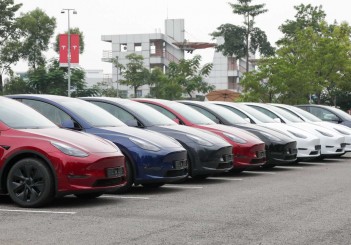PETALING JAYA: Car makers other than BMW and Mercedes-Benz are silent on the proposed plan by the Malaysian Government to introduce B10 biodiesel from October.
The industry players whom CarSifu reached declined to be quoted on the issue, with one official saying the Malaysian Automotive Association would be the right authority to make a stand on the B10 programme.
When contacted, Malaysian Automotive Association (MAA) president Datuk Aishah Ahmad said the association, which represents the major car companies locally, is seeking feedback from its members over a one-month period before it could comment on the matter.
However, one Japanese truck maker said it stood by a Japanese Automobile Manufacturers Association, Inc recommendation that going beyond the B5 blend would undermine vehicle performance.
Plantation Industries and Commodities Minister Datuk Amar Douglas Uggah Embas said the Government was open to further discussions in resolving the impasse with BMW after the premium car maker strongly protested on June 8 against the use of B10, which it said could cause sludge build-up and damage engines.
BMW Group Malaysia managing director and CEO Alan Harris said, however, the current B7 blend is compatible with its diesel cars.
Mercedes-Benz followed up by announcing on July 1 that its diesel cars were able to run on B10 diesel without problems.
“After having initially stated that the B10 biodiesel blend requires further consideration, we are now pleased to inform our customers about the B10 biodiesel blend suitability for all Mercedes-Benz diesel vehicles currently sold by Mercedes-Benz Malaysia,” said Mercedes-Benz Malaysia president and CEO Roland Folger.
BMW's Harris had said its tests also showed that using 10% of palm-based methyl ester with petroleum diesel resulted in higher levels of water in the fuel, which would lead to corrosion of parts that transport the fuel and promotes oxidation in the tank, causing a blocked fuel filter.
The Government is pushing the B10 programme in efforts to increase palm consumption from about 700,000 tonnes to 1 million. This would help stabilise the price of the commodity, which has gone down more than 20% since last year.
Provided that corrosion and other use-related issues are resolved, the widespread use of biofuels help reduce vehicle emissions, especially tailpipe CO2 emissions.
While the B10 programme has divided the Malaysian auto industry, the United States uses much higher-level diesel blends.
According to the US Department of Energy, B20 is the most common biodiesel blend in the United States as it represents a good balance of cost, emissions, cold-weather performance, materials compatibility, and ability to act as a solvent.
B20 and lower-level blends generally do not require engine modifications, it said, adding that engines operating on B20 have similar fuel consumption, horsepower, and torque to engines running on petroleum diesel.










